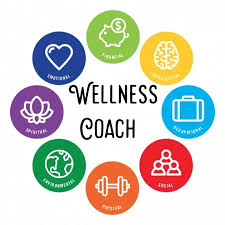Wellness Coach. A Convenient Title or a Profession of Responsibility?

Wellness has emerged as a global trend. The growing shift toward a healthier lifestyle has given rise to a number of new professions — one of the most talked-about being that of the Wellness Coach.
But what does "Wellness Coach" really mean? Who has the right to carry this title? And more importantly, why are we seeing a surge in self-proclaimed coaches who lack proper education or experience?
What a Wellness Coach Is – and Is Not
A Wellness Coach is a professional who helps individuals develop healthy habits, manage stress, and improve their relationship with their body and daily life. They are not psychologists, dietitians, or personal trainers — yet their role complements all of these fields.
Core responsibilities typically include:
- Motivating individuals and facilitating behavior change
- Guiding the creation and implementation of wellness plans
- Collaborating with other professionals (nutritionists, trainers, doctors)
- Teaching techniques for stress management and balanced living
To be effective — and, most importantly, safe — a Wellness Coach should have foundational knowledge in nutrition, behavioral psychology, human physiology, and essential coaching skills.
Can Anyone Be a Wellness Coach?
The simple answer is: no. And yet, in practice, it seems that anyone can call themselves a coach — without oversight, without recognized training, and often without any relevant background.
Sometimes, a brief online course or even a personal "wellness journey" is enough for someone to add the title "Wellness Coach" to their résumé. This leads to:
- Confusion among consumers
- The risk of misinformation or unrealistic promises
- The devaluation of a professional field that is still evolving
Who Should Be a Wellness Coach?
The role of a Wellness Coach should not be based solely on personal experience or hobbies. It should be grounded in:
- Recognized studies or certifications (in coaching, nutrition, psychology, physical education, etc.)
- Supervised practice or real-world coaching experience
- A clear understanding of professional boundaries — what advice they are qualified to give, and what lies beyond their scope
Suitable candidates may include:
- Graduates in nutrition, psychology, physical education, who have also trained in coaching
- Specialized coaches with formal education in wellness and behavior change
- Health and wellness professionals who have completed certified wellness coaching programs
The key is to distinguish personal experience from professional authority.
Are We Crowning Everyone a Coach in the Name of "Wellness"?
Unfortunately, yes. The booming demand for wellness services has created a vacuum — one that many rush to fill without the necessary qualifications. The internet is flooded with "coaches" dispensing advice on life, nutrition, fitness, and mental health — often without the appropriate background.
The result?
- Clients are left confused or disappointed, seeing little real progress
- Vulnerable individuals may suffer physical or emotional harm
- Professional coaching — which is based on structure, training, and ethics — is being discredited
Conclusion: Coaching with a Compass — or Just Fireworks?
Wellness is serious business. And a Wellness Coach must be a serious professional — not a flashy social media title. Without clear standards and safeguards, this profession risks discrediting itself before it even matures.
What we need is:
- Certification and transparency about qualifications
- Collaboration with licensed health professionals
- Respect for the role — and its limitations
The title Wellness Coach should not be easily obtained. It must be the result of knowledge, education, and responsibility.
